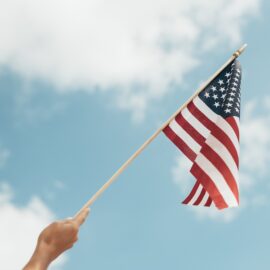

This article is an excerpt from the Shortform book guide to "Strangers In Their Own Land" by Arlie Russell Hochschild. Shortform has the world's best summaries and analyses of books you should be reading.
Like this article? Sign up for a free trial here .
What does voting against self interest mean? Why do people vote against their own interests?
Voting against self interest continues even when people are faced with evidence of bad outcomes. Yet, people continue to do it because it satisfies an emotional truth.
Read more about voting against self interest and why people do it.
The Plight of the Right: Voting Against Self Interest
Blue-collar conservative voters’ support for the pro-corporate agenda of the modern GOP often results in tragic outcomes for them. In this chapter, we’ll explore:
- How conservative states like Louisiana have some of the lowest national rankings on crucial quality-of-life measures like health, education, income, and air and water quality
- How these outcomes are often a direct consequence of these voters’ disdain for government regulation and support for politicians who are committed to gutting public services
- How the emotional force that truly animates popular support for conservatism is a desire on the part of white conservatives to uphold their honor, dignity, and perceived rightful place in the social hierarchy—especially in the face of a liberal Democratic Party that conservative Louisiananans feel is hostile to their way of life
The Conservative Paradox
If we’re going to overcome the empathy wall between liberals and conservatives and understand voting against self interest, we need to first explore what appears to be an inexplicable phenomenon of American politics: that the most conservative, heavily Republican states in the country are enduring immense suffering—often as a result of the pro-business, anti-tax policies favored by the politicians who represent them.
This is the central paradox of American politics. Why do economically disadvantaged whites—especially those living in states with poor health, education, and social mobility rankings—enthusiastically support a Republican Party that opposes economic policies (including paid family leave, environmental regulation, and universal healthcare) from which they would clearly benefit?
Particularly in the Deep South, arguably the ideological nerve center of American conservatism and far-right Tea Party activism, states and counties lag behind the rest of the country across nearly every measurement of human development. This seeming disregard for their own economic self-interest on the part of conservative Republican voters seems maddening and incomprehensible to many on the left, partly due to their voting against self interest.
Public Disinvestment
The state of Louisiana, where we’ll focus our analysis, ranks near the very bottom of all 50 states across most quality-of-life measurements, including life expectancy, health outcomes, median income, educational attainment, and pollution. Here, Republican politicians offer minimal public investments in services like healthcare, social insurance, and education, while keeping taxes on businesses and wealthy individuals low. This is a key part of voting against self interest.
Meanwhile, their anti-regulatory agenda allows the powerful oil and petrochemical industries to pollute the state’s air and drinking water, leading to some of the nation’s highest cancer rates for residents. It would seem that if any state would stand to benefit from a more activist government committed to investments in public goods and one less friendly to business interests, it would be Louisiana. The paradox runs even deeper when you consider the fact that, for all of the state’s anti-federal rhetoric, it is in fact highly dependent on federal largesse—with a full 44 percent of the state budget coming from Washington.
But this is clearly not how Louisianans see it, particularly those living around Lake Charles in the southwest corner of the state—the epicenter of the state’s sprawling extraction industry. Since 1972, Louisiana has voted Republican in nine out of 12 presidential elections, and it gave President Donald Trump one of his largest margins in 2016.
Voting against self interest seems counter intuitive, yet people continue to do it every election.

———End of Preview———
Like what you just read? Read the rest of the world's best book summary and analysis of Arlie Russell Hochschild's "Strangers In Their Own Land" at Shortform .
Here's what you'll find in our full Strangers In Their Own Land summary :
- What drives right-wing politics in America
- How a lack of empathy is increasing the partisan divide
- Why Republican politicians remain popular even if their policies don't help their voters






